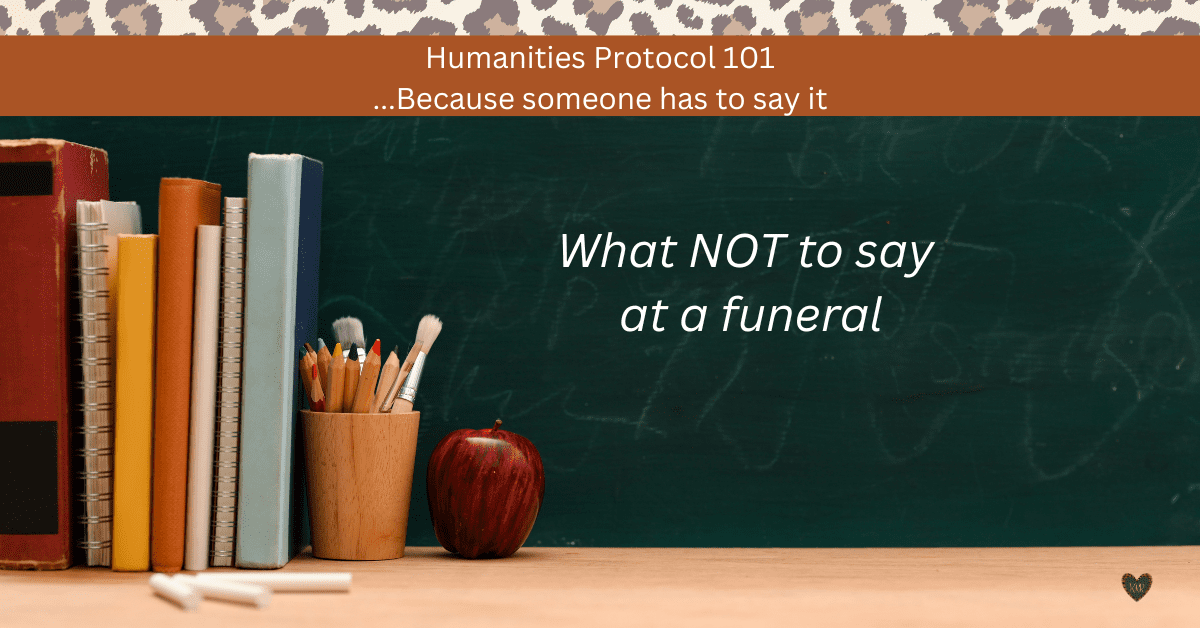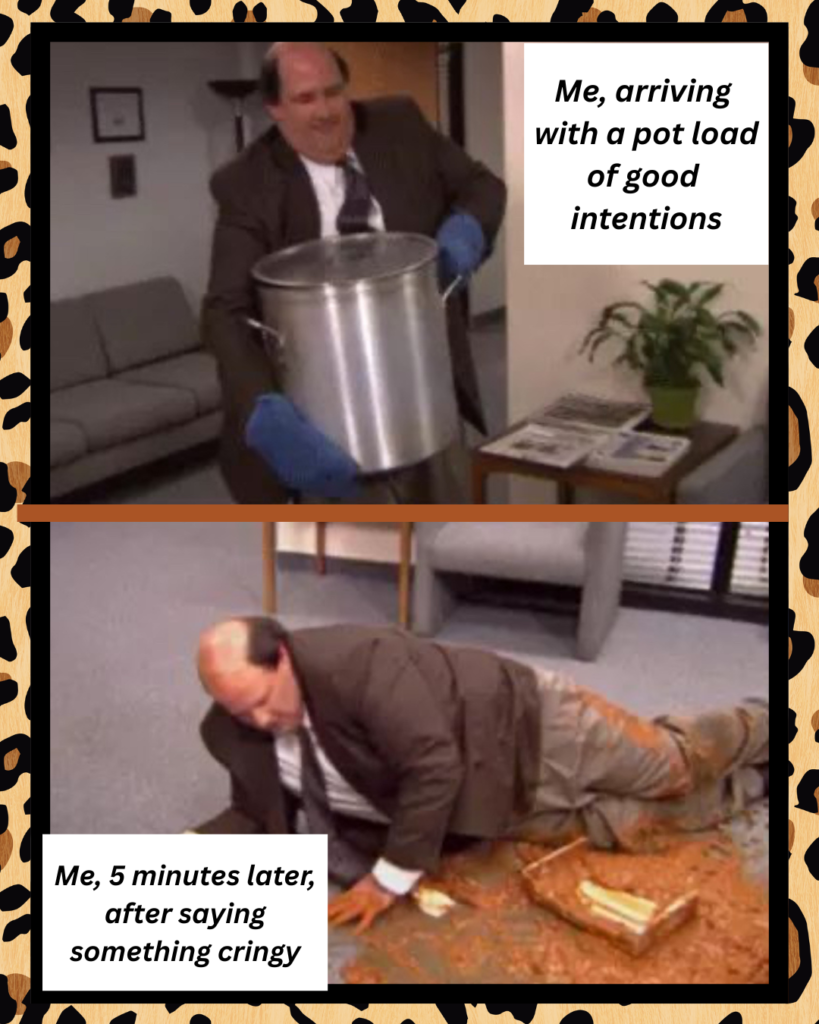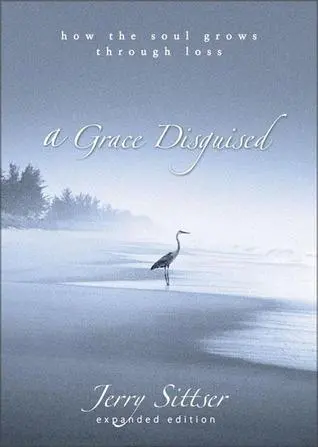
What Not to Say at a Funeral
Let’s set the scene.
It’s a funeral. There are tissues. There are casseroles. There are people doing their best not to fall apart. And then… there’s you, trying to offer comfort but you accidentally utter something rather awkward.
If you’ve ever said something at a funeral and then replayed it in your head for the next 12 years, this post is for you. If you haven’t, then this post is definitely for you.
Common Offenses (Please don’t say these things):
- “They’re in a better place.”
- “At least they lived a long life.”
- “Everything happens for a reason.”
- “God needed another angel.”
- “You’re young—you’ll find someone else.”
- “Let me tell you what helped me when my husband/wife/partner died.”
- “I know exactly how you feel.”
- “How are you doing?”
Let’s be honest: these are often well-meaning, but they land with all the grace of a dropped pot of chili.

Humanities Protocol 101: The Baseline Response
If you’re not sure what to say, I scripted some ideas for you:
🗣️ “I’m so sorry. I’m thinking of you.”
🤝 “This must be so hard. I’m here if you need anything.”
💌 “I loved [Name]. They meant a lot to me.”
And then—brace yourself—stop talking. Sometimes your presence is the real comfort. Silence is underrated.

When You’re Panicking & Tripping Over Words
Remember the Rule of the 3 S’s:
- Short
- Sincere
- Supportive
Not poetic? That’s fine. A warm hug or a hand on a shoulder works better than an awkward TED Talk about heaven.
But What If…?
- What if I say something weird? You probably will. We all do. A simple, “I didn’t mean that the way it came out—I’m just so sorry,” fixes most things.
- What if I start crying? You’re human. Go ahead and cry.
- What if they want to talk and I don’t know what to say back? Listen. Listening is free and wildly underrated.
Final Thoughts from the Humanities Desk:
If the goal is to show up and support the living—you’re doing great. You don’t need to be wise or witty. You just need to be kind…and maybe bring a pie or a dinner that can be reheated without too much fuss.
Also, don’t say, “Let me know if you need anything,” unless you’re prepared to follow up. A better move? Just do something. Drop off groceries. Text them that they are on your mind. Ask them if they’d like to take a walk/see a movie/have coffee.
Reach out to them a month later when everyone else has moved on. You’ll be remembered for that more than any Hallmark attempt at comfort.
After my parents died, I LOVED hearing stories about them – how they touched others’ lives, how they made someone feel special, or how they inspired a laugh. I still do. And seeing photos of my parents (at any age) beams a ray of sunshine into my day. Bonus points for goofy photos, they add levity.
Sometimes people think that talking about someone that has passed on will dredge up sad memories. For me, the opposite is true, I will never forget my parents and how wonderful they were. And I don’t want anyone else to forget them either.
Yes, I miss them, but I will never get tired of talking about them…and all the challenges my siblings and I put them through. Those stories would provide fresh material for the SNL comedy writing team.
If you’d like another resource, my sister and I read and recommend A Grace Disguised, How the Soul Grows Through Loss. It’s a beautifully powerful book that addresses all losses. I’ve shared it with many friends, I keep an extra copy in my personal library in case someone would benefit from it.

Carry tissues. Speak gently. Avoid clichés. Hug generously.

